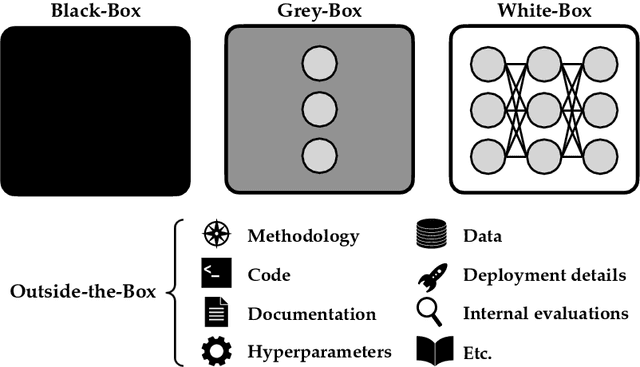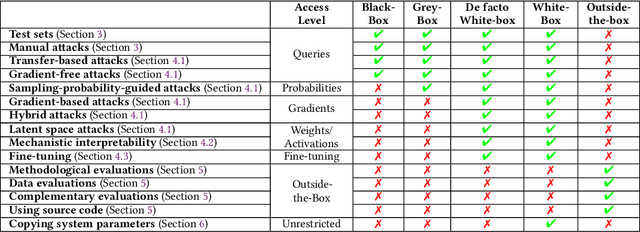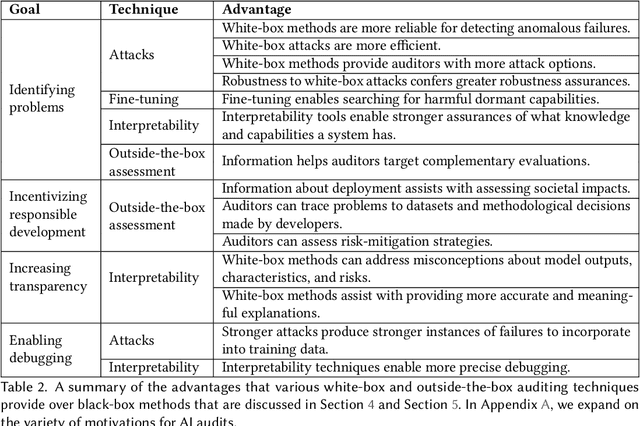Benjamin Bucknall
Black-Box Access is Insufficient for Rigorous AI Audits
Jan 25, 2024


Abstract:External audits of AI systems are increasingly recognized as a key mechanism for AI governance. The effectiveness of an audit, however, depends on the degree of system access granted to auditors. Recent audits of state-of-the-art AI systems have primarily relied on black-box access, in which auditors can only query the system and observe its outputs. However, white-box access to the system's inner workings (e.g., weights, activations, gradients) allows an auditor to perform stronger attacks, more thoroughly interpret models, and conduct fine-tuning. Meanwhile, outside-the-box access to its training and deployment information (e.g., methodology, code, documentation, hyperparameters, data, deployment details, findings from internal evaluations) allows for auditors to scrutinize the development process and design more targeted evaluations. In this paper, we examine the limitations of black-box audits and the advantages of white- and outside-the-box audits. We also discuss technical, physical, and legal safeguards for performing these audits with minimal security risks. Given that different forms of access can lead to very different levels of evaluation, we conclude that (1) transparency regarding the access and methods used by auditors is necessary to properly interpret audit results, and (2) white- and outside-the-box access allow for substantially more scrutiny than black-box access alone.
Towards Publicly Accountable Frontier LLMs: Building an External Scrutiny Ecosystem under the ASPIRE Framework
Nov 15, 2023Abstract:With the increasing integration of frontier large language models (LLMs) into society and the economy, decisions related to their training, deployment, and use have far-reaching implications. These decisions should not be left solely in the hands of frontier LLM developers. LLM users, civil society and policymakers need trustworthy sources of information to steer such decisions for the better. Involving outside actors in the evaluation of these systems - what we term 'external scrutiny' - via red-teaming, auditing, and external researcher access, offers a solution. Though there are encouraging signs of increasing external scrutiny of frontier LLMs, its success is not assured. In this paper, we survey six requirements for effective external scrutiny of frontier AI systems and organize them under the ASPIRE framework: Access, Searching attitude, Proportionality to the risks, Independence, Resources, and Expertise. We then illustrate how external scrutiny might function throughout the AI lifecycle and offer recommendations to policymakers.
 Add to Chrome
Add to Chrome Add to Firefox
Add to Firefox Add to Edge
Add to Edge